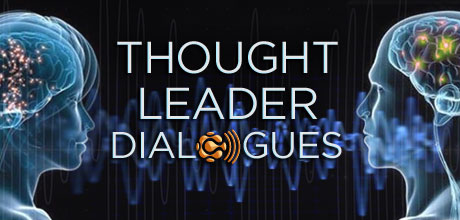Soul Prints Interview with Marc Gafni
In our discussion with Marc Gafni, we asked him to refer us to places in the Soul Prints text where some of the following issues are discussed. For a deeper understanding, please see the dramatic expansion and beautiful elaboration of these ideas in Soul Prints, published by Pocket Books.
-
Your own journey to becoming a respected spiritual leader is an interesting one. Would you share some of your personal story with us?
Marc Gafni: The first step on a wisdom search is to know that your are on a journey–a journey to find some answers, or at least to find peace with the questions. What are we doing here? What is the purpose of our lives? How can we achieve some measure of fulfillment in an otherwise often insane world?
Marc Gafni: I don’t ride a motorcycle: I go in search of my Zen through my books. For me, study isn’t a professorial kind of thing–it’s time travel, argument, and flying to the stars.
Marc Gafni: Rashi–medieval French writer–keeps interrupting me. The Ishbitzer–revolutionary mystical master of th century Poland–grabs me and whispers into my ear. Nachman of Breslav–tortured, joyous and controversial teacher–sits me down and tells me a story. Isaac Luria–the “Lion” of Renaissance mysticism–simply fixes me with his burning eyes and pierces my soul. Moses and Jacob engage Buddha and the Bhodisatvas. Jung meets the Baal Shem Tov on dusty rural cobblestones. And the ritual of the Last Supper seduces my palate.
Marc Gafni: Sometimes I think I don’t read Biblical myth: I see it in D movie. Better yet, I am the movie, playing every one of the characters. For me, Bible study isn’t ritual, it’s a personal quest into a world of complexity, pain, love, betrayal, and towering characterizations of archetypal man.
Marc Gafni: For one of the ways, teach the Kabbalists, that we hear the truths of our own voice is through engaging in conversation with guides. The men and women of Biblical myth are such guides. They are real people who lived and loved, while at the same time they are larger-than-life symbols of the best and occasionally the worst in us.
Marc Gafni: Maybe this is some of what the ancient wisdom masters had in mind when they said, “The deeds of the ancestors are guides to the children.” For the peoples of the book, reading Biblical myth is what traversing the land is for the Australian “first nations”–a return to the dream time in which the footprints left by those who have gone before step into our own lives.
Marc Gafni: In finding my voice I open myself to their wisdom, and since their wisdom is intentionally never stated in clear sentences–hidden as it is in image and story–I can only receive them through the prism of my soul.
-
What is a soul print?
Marc Gafni: A soul print is your spiritual signature. It is the contour and content of your soul’s character. It is more specific to you, and you alone, than the handwriting of your name scrawled on a check or a letter. It is even more singular than your genes and chromosomes.
Marc Gafni: Your soul print exists not only within, but also without, in how your soul touches the world. When you pick up a pen, brush your hand across a banister, turn a doorknob, shake a hand, touch someone”s face, you leave behind an imprint of yourself, your fingerprint. Even after you’ve let go, a part of you remains.
Marc Gafni: It is the same with your soul print. The people and places touched by your soul are imprinted with your mark, with your essence.
-
Why is it important for us to identify our soul print?
Marc Gafni: Because your soul’s signature is unique to you, to be happy is to be “living your lot”, your unique unfolding in the world. One evening over dinner with Cary [my wife] and me, our friend Karen uttered something precious that we carry with us. “I’m the happiest I’ve ever been in my life.” The italics were hers. To be able to say, “I am happy in my life”: there is no greater gift in the world.
Marc Gafni: Imagine the difference between the clothes tailored for your and clothes that you borrow from a friend that do not quite fit. That jacket, those pants can do for a day or so, but you will not feel fully comfortable in them, and you surely will not have that joyous feeling of putting on garments tailored to the measure of your life.
Marc Gafni: If you feel as if you live your life in someone else’s shoes, that you are fully replaceable, that if you leave there will be someone sitting at your desk next week doing precisely what you do, then you will feel valueless. Such devaluation of self is the root of almost all depression.
-
How does someone begin that discovery process?
Marc Gafni: Identifying your soul print requires detective work. Just as with the right tools you can pick up the finger’s unique and subtle markings, with the right spiritual tools you can pick up the soul’s markings. That’s what Soul Prints is all about.
-
You state that what drives us in the world is our attempt to move from loneliness to a place of relationship, connection and loving. Why are we, as a culture, so lonely and alienated from one another? How can Soul Prints change that?
Marc Gafni: We have lost sight of the truth of our elemental loneliness because we cover the aloneness of our being with the illusion of having. In our modern culture, being is too often connected with having.
Marc Gafni: Today, we have become shoppers and accumulators, defining ourselves by our consumption, attempting to smother our loneliness with things. Gandhi said, “There is enough in this world for everyone’s need, but not enough for everyone’s greed.”
Marc Gafni: Sometimes I wonder whether we Westerners are not more accurately described as “human havings” than human beings. Having becomes a way to avoid being. Moreover, we use having to validate our being, our personal worth and value.
Marc Gafni: Soul prints give evidence to our individual beauty. Your beauty includes everything that is you. It includes your weaknesses, your strengths, your pathologies, and your dreams.
Marc Gafni: You can be in Times Square surrounded by the madding crowd, or in an office working as the mail boy, the CEO, or a mid-level exec; you can buy and sell and communicate with twelve different countries in one day; and yet you can still be lonely because you haven’t shared your soul print.
Marc Gafni: You can be a married single. You can be in a relationship with someone, have three kids with her, yet be lonely because although you’ve merged physically, you still haven’t shared your soul print.
Marc Gafni: Soul prints are shared when we laugh and cry together. There’s nothing more intimate than a couple crying together, whether tears of sadness or ecstasy. There is nothing more erotic than the passionate intertwining of two soul signatures.
Marc Gafni: The magnum opus of the Kabbalah, the Zohar, teaches that we all need to bless each other. That is a strange idea on first hearing but a beautiful gesture on second thought.
Marc Gafni: We all have the power of blessing. So I bless you and ask that we all find our soul print and share it with the ones we love.
-
What about bad or evil people, do they have soul prints?
Marc Gafni: Evil, or personal pathology, results from our not living our story.
Marc Gafni: When we’re not living our unique soul prints, our souls cry out. The way they cry out is often through personal pathology which exposes itself as evil. Just like when the unique physical organism is violated with an injection of blood not its type the organism gets sick, so too when we inject a story not our own into our unique system, we get sick. The symptoms of that sickness are often personal pathologies.
-
You draw heavily on Biblical myth in your book. Why is it so key to understanding the Soul Prints process?
Marc Gafni: The critical difference between Greek and Biblical myth is that Bible stories are not about gods but people. More specifically, Biblical myth gives us stories of people who, just like you and me, wanted to live with meaning and to feel their lives mattered.
Marc Gafni: In the course of their lives, the Biblical myth characters made many mistakes, from King David, who was overwhelmed by his desire for Bat Sheva, to Moses, who fell prey to his own anger. Yet they lived heroically. Their heroism arose from the fact that they never lost their core connection to the grounding source of life.
Marc Gafni: Today we call that ground Energy, a personal God, the Force, and the like. All of these designations capture a part of the Biblical understanding of God. Biblical myth is the product of the heroic human search for a life that matters. A life that matters, in Biblical myth, is a life in which people live their soul print stories and respond to their soul print calling.
-
Why are people currently ready to receive the Soul Prints message?
Marc Gafni: We are tired and ultimately unsatisfied by the priest-psychologists who have guided our lives in this century.
Marc Gafni: Robbing humans of their rightful grandeur is the tragic shadow side of Freud’s legacy. In some sense, it is Freud’s ultimate rebellion against the Biblical myth that nourished him and really a bit of an Oedipal story in itself where the son and his psychology overtake the vigor and significance of the father figure of Biblical myth.
Marc Gafni: Psychological myth reduces our deepest yearnings and needs to a set of uninspiring, pitiful human drives that are beyond our control and ignoble at their core. Biblical consciousness tells us that while the human condition might at times be tragic, it is never pitiful.
-
An integral part of a person’s soul print is his “calling” or mission in life. How can someone determine what that is for himself?
Marc Gafni: How do calls make themselves heard, especially if you’re not the kind of person who ordinarily hears voices talking from burning bushes or car radios?
Marc Gafni: For those of you who missed the car radio allusion, I am referring to Oh God, a seventies movie starring George Burns and John Denver. God (played by George Burns) speaks to Denver by talking to him through his radio. Of course, everyone thinks Denver’s character is crazy, and so begins the movie.
Marc Gafni: With all due respect to George Burns, the universe is usually more veiled and sophisticated in its calling mechanisms than AM/FM car radios. The cosmos employs a gorgeous and complex system of what we will call “soul print hints”. We develop this idea of soul print calls in depth in chapter of the book.
-
What is one key message you would like people to get from your book?
Marc Gafni: The book is about four things: knowing you have a soul print, identifying your soul print, knowing how to receive the soul print of another, and knowing how to communicate your soul print to another person.
Marc Gafni: In the book, what we try and do is provide people with a soul print language, a soul print reality map that allows me to access the joy and power which I get only when I’m living my story.
Marc Gafni: The book is not just conceptual and philosophical. It is also practical: how to live my story, how to identify my soul print.
Marc Gafni: We need to start a soul prints revolution. Every person who receives the soul print of another should ask them to pass it on. Go and find someone whose soul print you can receive and pass it on again.
Marc Gafni: Never be served by someone whose name you don’t know. Ask your friends to do the same, and once they’re doing it, let them pass it on. A society in which we all know each others’ names is the beginning of a world of soul print receiving, of soul print reality. It’s the beginning of a soul print revolution that could transform our planet.














